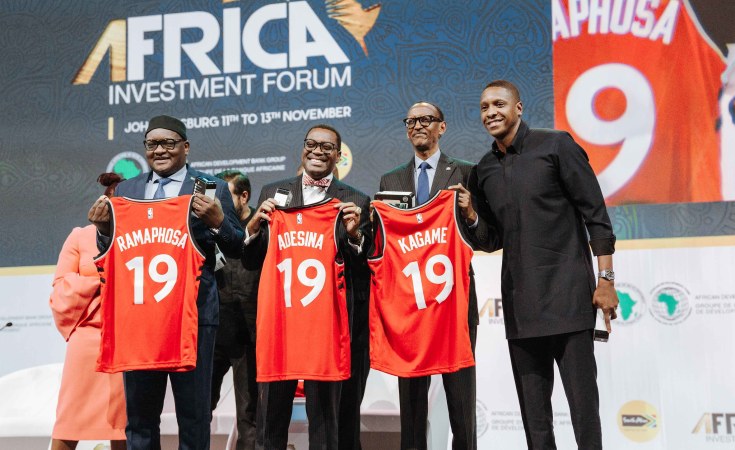In many ways, Africa needs trade and investment even more than it needs development aid. This is reflected by the African Development Bank's commitment to explore all the possible options of mobilising domestic resources.
Africa's financing needs will remain very large over the next few decades. Both public and private capital formation will be necessary to pursue the necessary structural transformation of African economies into industrial and post-industrial societies.
Governments, of course, remain critical in sustaining investment in Africa in the coming decades, and external debt financing is key to supporting basic infrastructure construction and the provision of standard public services.
Domestic resource mobilization allows Africa to move towards financial autonomy. In 2015 African tax revenues had more than doubled in ten years to over $500 billion, almost 3 times higher than the total value of foreign direct investment, overseas development aid, and remittances.
However Africa can do even better. Much can be done by improving tax administration. For instance the Republic of Togo's tax reforms increased its tax revenues to GDP ratio from 16% in 2010 to 20% in 2015 thanks to the technical and financial advice of the African Development Bank.
The composition of total financial flows to Africa reflects the dynamism of its domestic markets. In 2017, total financial inflows are projected were around $180 billion. Remittances were $66.2 billion, foreign direct investment inflows were $57.5 billion, supported mainly by greenfield investments from emerging economies. Tax revenue remains the most important source of domestic financing in African countries but has slowed down with the decline in commodity prices.
There is a clear need to continue with the policy of developing innovative tools to finance development, concentrating on deepening domestic capital markets and on crowding in private capital through risk mitigation instruments to unlock resources that can replace debt.
Developing more risk-sharing instruments with the private sector through pre-financing of future tax revenues, establishing sovereign insurance contracts, and leveraging government and multilateral guarantees, will contribute to significant de-risking of private investments in capital intensive projects.
Private sector participation in infrastructure development must be increased by putting in place the required regulatory frameworks and scaling up public-private partnerships. The Bank and other international financial institutions can help to increase risk-sharing with the private sector and reduce public borrowing needs. Contingent debt, where repayment is conditional on the achievement of certain project milestones, can improve incentives for government officials and private corporations to complete major projects without delays or quality control problems. Multilateral lenders can provide benchmarks and guidelines, as well as low-risk financing tranches for long-term projects.
The Bank can help develop guidelines and international best practice principles for the design and implementation of such new instruments to strengthen transparency, protect borrowers against commodity price downturns, and ensure competitive tender processes across infrastructure suppliers to optimize the cost of project development.
It can also exploit mutually advantageous exchanges, such as "natural resources for infrastructure" bargains with traditional or new bilateral lenders. Resources for infrastructure swaps, where natural resources revenues are used as collateral or direct repayment instruments in the financing of large infrastructure projects, can be useful in fostering economic diversification and in reducing the need for direct foreign borrowing.
The Bank is also exploring the use of diaspora bonds to crowd in private sector funds and mobilise domestic and national resources. Such bonds have already been issued by several African countries, such as Ethiopia and Nigeria, to tap the increasing flow of remittances from migrants in advanced economies, and to channel these funds toward infrastructure investments. The Bank could, for example, provide guarantees or co-finance part of the return on these bonds to make them attractive to emigrants and to ensure that they finance efficient investment projects.
This is the key to economic transformation - innovation in resource mobilisation and international investments, presenting a legacy of growth coupled with the confidence of a new generation of young African entrepreneurs and leaders with new vision and ambition, incentivised and encouraged to invest and engage in enterprise and innovation.
A transformed Africa cannot be dependent upon commodities, or upon foreign aid, or on handouts of any kind. Africa is quite simply a great investment, a collective deal with better numbers and potential than a lot of other investment packages in developed countries.
It no longer takes an act of imagination to grasp this. It can be seen in the growing diversification and industrialisation of African economies and the accelerating progress made towards the achievement of the High 5s.
It can be seen in the inspirational Africa Investment Forum, where these and many other ideas and innovations can be appreciated at close hand in the negotiations and bargaining that characterise good deal making on behalf of Africa.



